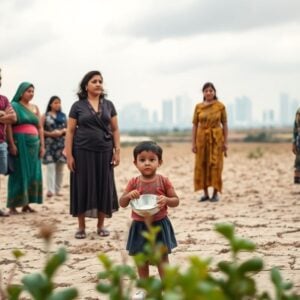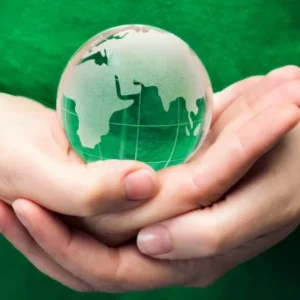Global initiatives to tackle poverty and economic inequality hit roadblocks this week after major players were absent from critical G20 and UN meetings, and key donors cut back aid, casting a shadow on the prospects for meaningful progress against global poverty.
Key Takeaways
- Leading economic powers, including the US, China, Japan, and others, skipped critical anti-poverty meetings.
- The US officially withdrew from the UN’s Financing for Development conference, citing disagreements on major policy issues.
- International aid is being reduced, jeopardizing multilateral efforts to bridge the financing gap for development and climate action.
G20 Summit Undermined by No-Shows and Discord
The recent G20 summit in Cape Town, expected to spark coordinated global action against poverty, was notably weakened by the absence of finance chiefs from the US, China, Japan, India, and Canada. With major economies not represented, hopes of reaching robust agreements diminished.
Debates over climate action, global trade, and financial policy were hampered by these absences and ongoing disputes. Many present, including South African President Cyril Ramaphosa, stressed the need for unity. However, experts warned that reduced engagement and shrinking foreign aid signal fading collective resolve, threatening efforts to address inequality and climate change.
U.S. Withdrawal Weakens UN’s Development Push
At the UN Financing for Development conference in Seville, the US rejected a months-negotiated outcome document and withdrew from the gathering altogether. The US cited concerns over proposals that would increase the UN’s role in global debt management, call for higher tax revenues, and expand international development bank lending.
Despite US opposition, representatives from over 70 nations and several financial institutions adopted the Seville Commitment, pledging new reforms to bridge the $4 trillion annual global development financing gap. The plan emphasizes raising domestic revenues and leveraging private sector investment—goals that appear harder to reach without the support of the world’s largest economy.
Aid Cuts Put World’s Poor at Greater Risk
Shrinking development budgets from the US, UK, and other traditional donors come as many low-income nations face greater debt pressures and declining investment. For some countries, debt service now consumes more funds than health and education combined, deepening poverty and reducing resilience to crises.
Leaders and analysts voiced concern that the withdrawal of support from global institutions could further sideline the needs of vulnerable populations, especially in poorer nations struggling to recover from recent economic shocks.
Implications for Global Development Cooperation
As consensus at major multilateral gatherings grows harder to achieve, the focus may shift toward new alliances or smaller coalitions aiming to fill the gap left by absent powers. Some experts suggest this could grant more influence to nations like South Africa but warn of greater fragmentation in global governance.
Ultimately, the lack of unity at these crucial meetings signals a troubling impasse just six years away from the 2030 Sustainable Development Goals, raising urgent questions about the political will to combat global poverty and inequality in an increasingly divided world.
References
- U.S. skips global UN Financing for Development conference aimed at raising trillions to combat poverty, PBS.
- No-shows, aid cuts mar G20 meet on global poverty, Reuters.







